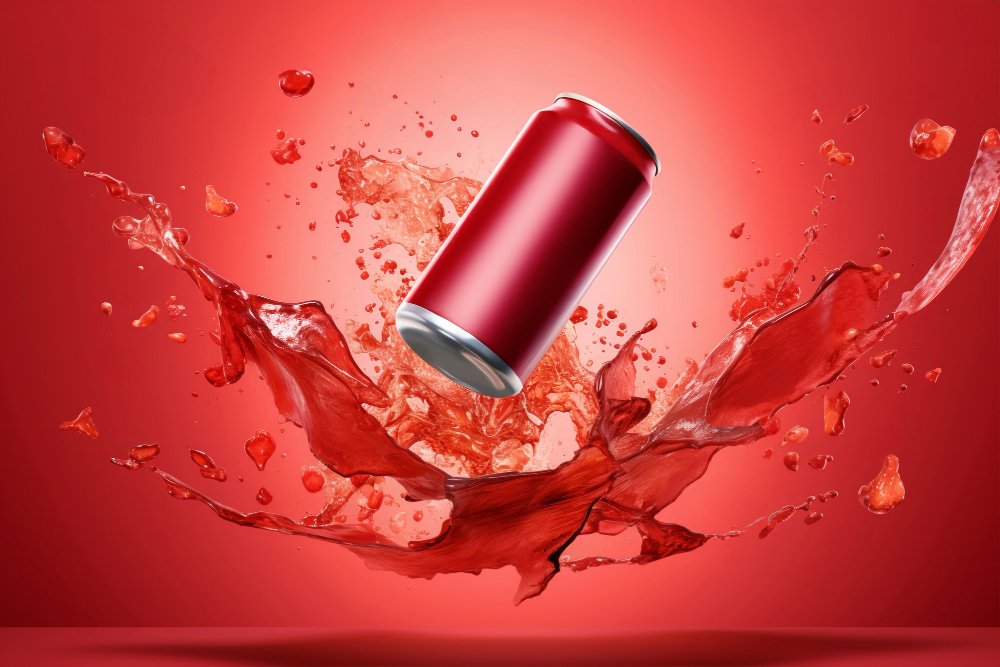A Study Published in 'Nature' on 14th May, 2025 revealed groundbreaking findings linking Taurine, a common ingredient in energy drinks, with 'Blood Cancer'
This research uncovers how certain signals in the environment around leukemia cells help them grow and become more aggressive. The scientists found that a nutrient called taurine, transported into cells by a protein called TAUT, plays a major role in helping leukemia stem cells survive and thrive.
Here’s what they discovered:
-
Where Taurine Comes From: A process in bone cells (driven by a protein called CDO1) produces taurine. This production increases as leukemia progresses.
-
Stopping Taurine Production Helps: Blocking the CDO1 protein in bone cells slows down leukemia cell growth and helps improve survival.
-
Blocking Taurine Transport: By stopping the TAUT transporter (which helps leukemia cells take in taurine), the growth of leukemia significantly slows down.
-
Combining Treatments: Blocking TAUT works even better when combined with an existing leukemia drug, venetoclax, especially in drug-resistant cases.
-
Why It Matters: Without taurine, leukemia cells can’t fuel critical processes like energy production, which makes it harder for them to survive.
In short, taurine acts like a fuel source for aggressive leukemia, and targeting it could be a powerful new way to treat the disease.
Buy Organic Berberine Oolong Tea
Exploring the Connection Between Taurine and Blood Cancer
Taurine is a sulfur-containing amino acid that is naturally produced in the human body, predominantly found in the brain, heart, and skeletal muscles. Chemically classified as 2-aminoethanesulfonic acid, taurine plays a crucial role in various physiological processes.
It contributes to bile salt formation, which is essential for the digestion and absorption of fats, and supports the maintenance of proper eye health by preventing retinal degeneration. Additionally, taurine is involved in the development and function of the nervous system, showcasing its importance beyond mere dietary supplementation.
Naturally occurring sources of taurine include meat, fish, and dairy products. The human body synthesizes taurine from two other amino acids, cysteine and methionine, though the efficiency may vary among individuals.
This variability raises questions about taurine intake for those with restrictive diets, leading to increased interest in energy drink ingredients that often include taurine as a supplement. It is commonly incorporated into energy drinks for its perceived ability to improve physical performance and concentration.
Despite its beneficial roles, there are prevalent misconceptions regarding taurine, particularly in relation to its inclusion in energy drinks.
Some consumers express concern about the potential for taurine to be harmful; however, numerous studies have assessed its safety profile and found it to be non-toxic at normal consumption levels.
The combination of taurine with other stimulants, such as caffeine, in energy drinks often creates confusion about its effects on health.
While taurine may enhance the overall energetic impact of these beverages, understanding its physiological roles and safety is vital in dispelling fears about blood cancer risk or other adverse health outcomes. In light of this, further investigation into taurine's implications in energy drinks is warranted.
The Rise of Energy Drinks: Popularity and Ingredients
The consumption of energy drinks has surged significantly over the past decade, becoming a ubiquitous part of modern consumer culture. This trend can be attributed to various demographic factors, including the lifestyle preferences of young adults and college students who seek convenient ways to boost their energy levels.
The capability of energy drinks to provide a quick energy surge is particularly appealing in a fast-paced world where many turn to these beverages in response to busy schedules, demanding work, and social engagements.
Marketing strategies play a pivotal role in the rising popularity of energy drinks. Companies often target younger consumers through aggressive advertising campaigns that highlight the energizing benefits of their products while associating them with high-energy activities, extreme sports, and social lifestyles.
Consequently, energy drink consumption is not merely a response to fatigue but has become intertwined with social identity and cultural trends.
Among the essential energy drink ingredients, taurine is widely featured, typically marketed for its supposed ability to enhance performance and mental alertness.
However, taurine is just one part of a broader array of components utilized in these beverages. Apart from taurine, energy drinks frequently contain high levels of caffeine, sugars, vitamins, herbal extracts, and amino acids, each contributing to the overall stimulating effect.
While many consumers enjoy these drinks for the immediate benefits they offer, it is crucial to understand the potential risks associated with their consumption.
The combination of high caffeine content and excessive sugar, especially when paired with taurine, can lead to health concerns, including increased heart rate and elevated blood pressure.
This growing popularity necessitates a closer examination of not only the ingredients involved but also the implications of their consumption patterns.
As more individuals turn to energy drinks to meet their energy demands, understanding the relationship between these beverages and potential health risks, including blood cancer, is vital.
Research Findings: Connections Between Taurine and Blood Cancer
Recent studies have begun to explore the potential relationship between taurine, a common ingredient in many energy drinks, and the risk of developing blood cancer.
Taurine, an amino acid found in various tissues in the human body, is often marketed in energy drinks as a substance that can enhance performance and provide a surge of energy.
However, growing concerns about its safety profile, particularly in relation to blood cancer, are prompting a closer examination.
One notable study published in a peer-reviewed journal indicated a potential link between high taurine intake and the incidence of certain types of blood cancer.
Researchers conducted a comprehensive analysis of dietary habits, including energy drink consumption, across a diverse population.
The findings suggested that excessive consumption of taurine-rich energy drinks might correlate with increased risks for developing malignancies such as leukemia and lymphoma. However, this study also noted limitations in its design and the need for more extensive research to substantiate these claims.
On the other hand, some research has found no significant connection between taurine consumption and blood cancer risk.
Experts underscore that while taurine is generally considered safe in moderate amounts, the consumption patterns associated with energy drinks could be problematic. The rapid intake and elevated doses of various energy drink ingredients, including taurine, caffeine, and sugar, may overwhelm the body’s physiological balance, potentially leading to adverse health outcomes.
Mechanistically, taurine has been hypothesized to influence cellular processes related to cancer development, such as oxidative stress and inflammation.
These factors can play crucial roles in tumorigenesis, raising questions about the contributions of taurine in the context of energy drinks. Medical experts recommend that consumers remain cautious about their overall intake of energy drinks and the implications of their ingredients on long-term health, particularly concerning blood cancer.
Beverages with Taurine (Descending Order of Content)
-
Red Bull Energy Drink
-
Taurine Content: ~1,000 mg per 8.4 oz can
-
-
Monster Energy Drink
-
Taurine Content: ~1,000 mg per 16 oz can
-
-
Rockstar Energy Drink
-
Taurine Content: ~1,000 mg per 16 oz can
-
-
NOS Energy Drink
-
Taurine Content: ~1,000 mg per 16 oz can
-
-
AMP Energy Drink
-
Taurine Content: ~500–1,000 mg per 16 oz can (varies by flavor)
-
-
Burn Energy Drink
-
Taurine Content: ~800 mg per 8 oz can (varies by market)
-
-
Full Throttle Energy Drink
-
Taurine Content: ~800 mg per 16 oz can
-
-
Reign Total Body Fuel
-
Taurine Content: ~500 mg per 16 oz can (not as high as others but present)
-
-
V Energy Drink (Australia/New Zealand)
-
Taurine Content: ~300–1,000 mg per 8 oz can (varies by flavor and market)
-
-
Bang Energy Drink
-
Taurine Content: ~300 mg per 16 oz can (lower taurine content compared to others)
-
-
Lucozade Energy (UK)
-
Taurine Content: ~200–300 mg per 8 oz serving (varies by type)
-
-
Rip It Energy Fuel
-
Taurine Content: ~200 mg per 8 oz can
-
-
Taurine-Enhanced Teas
-
Some specialty teas, such as "Focus Tea" or other performance blends, may contain taurine, typically in amounts ranging from 50–500 mg per serving.
-
Considerations
-
Many brands include taurine in similar amounts (~1,000 mg per serving for traditional energy drinks).
-
Newer or niche products may have varying taurine levels or none at all, as manufacturers diversify their formulations.
-
Always check the label for exact taurine content, as this can differ by country due to regulations or reformulations.
Making Informed Choices: Safety Guidelines and Alternatives
As energy drinks continue to gain popularity, particularly among young adults and athletes, it is essential to approach the consumption of these beverages with caution.
Many energy drink formulations contain various ingredients, such as caffeine, sugar, and taurine, which can pose health risks if consumed excessively.
To consume energy drinks safely, it is crucial to prioritize moderation. Adhering to recommended serving sizes and limiting intake to one or two servings a day can significantly reduce the likelihood of adverse effects on health, including the potential increased risk of blood cancer.
Another vital aspect of making informed choices involves ingredient awareness. Consumers should be diligent in reading labels to understand what they are ingesting.
Energy drink ingredients can vary widely, and some formulations may contain high levels of caffeine and sugar, along with taurine.
Studies suggest that while taurine itself may not directly contribute to blood cancer, the combination of certain ingredients found in energy drinks could elevate health risks. Therefore, knowing the specific contents of any energy drink consumed can help individuals assess its safety.
For those looking to boost their energy levels without the associated risks of energy drinks, numerous alternatives exist. Natural options, such as consuming foods rich in complex carbohydrates, proteins, or healthy fats, can provide sustained energy without the detrimental effects of artificial stimulants.
For example, nuts, fruits, and whole grains offer nutritious energy sources, while herbal teas and coconut water can serve as hydrating beverages.
By integrating these healthier alternatives into their diets, individuals can empower themselves to make more informed decisions regarding their energy-boosting options, ensuring they minimize health risks while maximizing their vitality.


 Large.jpeg)






